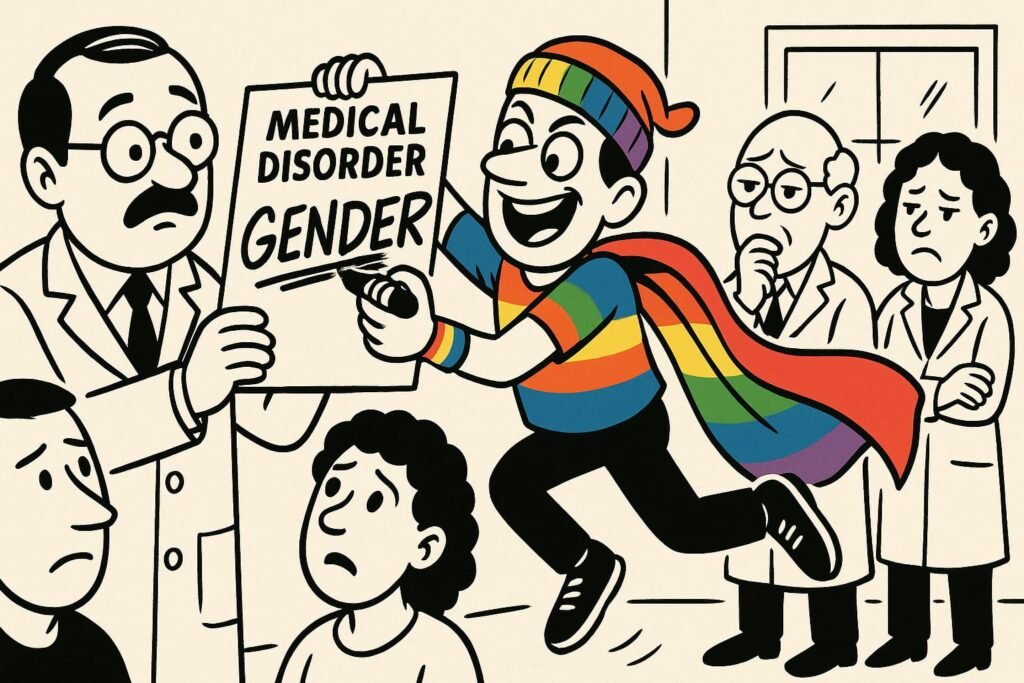Intersex Explained – Why It’s Not a Third Gender
From Medicine to Misuse
“Intersex” gets used a lot in debates about gender. Activists claim it proves sex isn’t binary. In reality, intersex is medical — not political. These are biological disorders, not new genders. But once Gender Theory got hold of the term, clarity gave way to confusion.
Table of contents
What Is Intersex?
In plain English: intersex means being born with a chromosomal, hormonal, or anatomical condition that doesn’t fit typical male or female development.
Examples include:
- Turner Syndrome (missing an X chromosome)
- Klinefelter Syndrome (extra X in males)
- Androgen Insensitivity Syndrome
- Congenital Adrenal Hyperplasia
These are rare and usually come with medical challenges — infertility, developmental issues, or increased health risks.
Buzzwords and Confusion
Activists often rebrand intersex as:
- “Variations of sex development”
- “Proof sex isn’t binary”
- “A natural third gender”
It sounds inclusive. But it’s misleading. Disorders are not new genders — they are medical conditions that need treatment and support.
How Gender Theory Uses Intersex
Gender Theory blurs categories. Instead of acknowledging intersex as medical, it’s presented as evidence that biology is optional. The result? Patients become political symbols.
It’s like calling a hole in the heart a “new kind of heart.” Compassion? Maybe. Honest? No.
Why This Matters
- For medicine: Accurate diagnosis and treatment depend on clear definitions.
- For patients: Euphemisms don’t cure disease. Honesty does.
- For society: Blurring biology with ideology confuses policy, law, and education.
From Compassion to Clarity
Respecting intersex people doesn’t mean denying reality. True compassion means recognising their medical needs, not turning their conditions into activist talking points.
Intersex isn’t a third gender. It’s biology — and biology doesn’t bend to slogans.
FAQ: Intersex Explained
Q: What does intersex mean?
A medical condition involving chromosomal, hormonal, or anatomical differences at birth.
Q: Does intersex prove sex isn’t binary?
No. Intersex is a disorder within male/female development, not a third sex.
Q: Why do activists call intersex a “variation”?
To support Gender Theory’s claim that sex is fluid. But that confuses medicine with ideology.
Q: Is calling intersex a disorder offensive?
No. It’s honest. Medical language allows treatment and support. Euphemisms don’t.
Q: What’s the real risk of confusion?
Patients get worse care, science gets muddled, and ideology hijacks healthcare policy.



